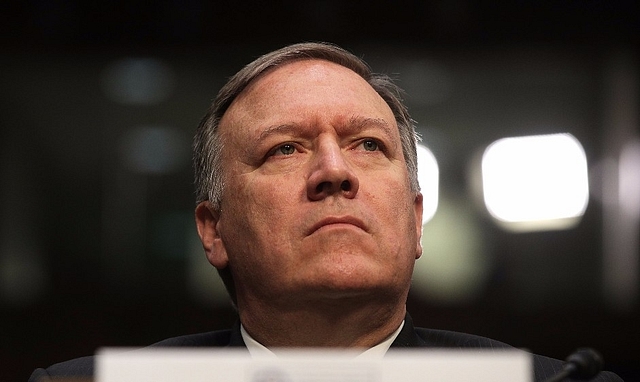
CIA Director Warns Pakistan, Says Act Against Terror Safe Havens Or We Will
In one of the sternest warnings to Pakistan in recent times on the terror havens on its soil, United States’ Central Investigation Agency (CIA) director Mike Pompeo has said that the US will “do everything it can to ensure they don't exist anymore".
The statement comes days ahead of US Defence Secretary James Mattis’ visit to Pakistan, where he will convey the Trump administration’s seriousness about the terror havens to the Pakistani administration, Times Of India has reported.
The US has on several occasions demanded that Pakistan act against the Taliban and Haqqani Network, which it shelters. These terror outfits are responsible for most US casualties in Afghanistan.
"We have been paying Pakistan billions and billions of dollars but at the same time they are housing the very terrorists that we are fighting. But that will have to change, and that will change immediately," US President Donald Trump had on said on 21 August, in one of the most direct call to action to Pakistan. He had also said that the US will cut off the aid it offers Pakistan if steps are not taken against the terrorist organisations.
After the address, Pakistan had identified several steps they were going to take, but "we have not seen those changes implemented yet”, said US General John Nicholson, commander of the international security forces in Afghanistan. He also said that the Taliban is "living in comfort in Pakistan with plenty of drug money".
What adds more credence to the statement is that Pompeo is widely speculated to be the next US Secretary of State taking over from Rex Tillerson. Pompeo's accession to top post might happen as early as January next year when the Trump administration completes its one year in office.